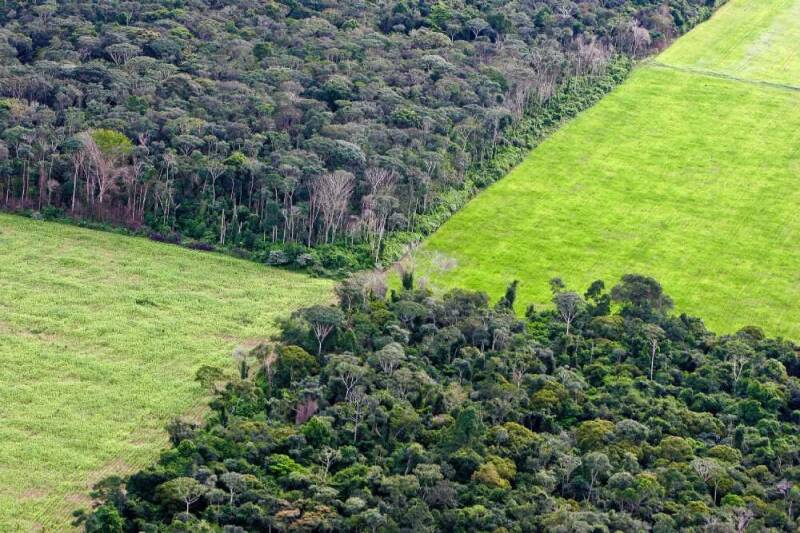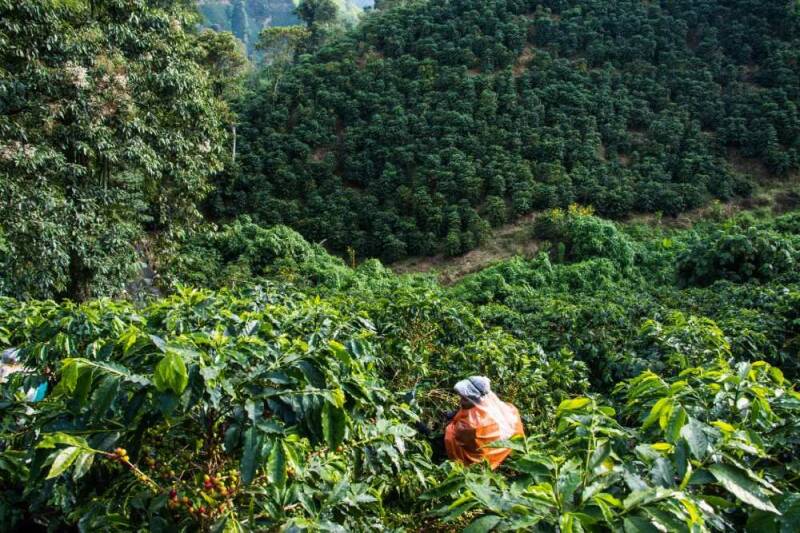EU will postpone the implementation of deforestation regulations (EUDR) and plan a grading system
Recently, the European Union announced that it will postpone the deforestation regulations (EUDR), which was issued in June last year and implemented on December 31, 2024, and will classify them as risk categories by country, and provide more adaptation time by category.
Experts believe that agriculture, including coffee production, is the biggest cause of deforestation around the world, with large-scale agriculture accounting for 75% of global deforestation. Deforestation is also one of the most pressing sustainable development issues for the coffee industry. Felling trees to increase land area for agricultural and commercial use can exacerbate soil erosion and release carbon dioxide into the atmosphere, leading to weather problems.

As a result, the European Union has introduced a new regulation that hopes to minimize and eradicate imports of products related to deforestation. In effect, EUDR allows traders to prove that the supply chain of their products is not involved in deforestation since December 30, 2020, otherwise the EU will ban imports of these products.
After the release of the new regulation by the European Union, it has had a significant impact on the staff of the coffee industry, and because many manufacturers are unable to implement reforms in time, the law has been criticized and questioned. In particular, coffee-producing countries such as Vietnam, Brazil, Indonesia and Colombia, where the European Union is one of the larger export markets, will greatly increase the export costs of these countries. In addition, earlier, the European Coffee Federation (ECF), an European coffee industry trade organization, including international well-known coffee brands and coffee traders, including Nestl é, Starbucks and Piay, sent a letter to the European Commission, hoping to delay the implementation of new EU deforestation regulations.

As a result, the European Union is currently meeting to discuss whether to postpone the implementation of the legislation, and to divide exporting countries into three levels: low-risk, standard-risk and high-risk. If an exporting country is defined as high-risk, it is considered to be a serious deforestation problem and will be subject to the highest level of scrutiny. On the contrary, low-risk countries will be subject to less inspection. According to the risks set by different countries, it will give producers and traders more time to adapt to the new regulations.
However, some people in the industry said that the regulatory plan lacks nuances and will produce bad results. High-risk countries also have exporters who strictly comply with the requirements of the regulation, but traders, bakeries and other industry participants are no longer working with them to avoid stricter scrutiny, which is unfair to exporters. and a large number of small farms may lose the market because it is difficult for small farms to obtain relevant data and meet standards. Moreover, the classification system requires both governments to strengthen inspection and law enforcement mechanisms. Although many countries are cooperating with a number of agencies to meet the requirements of the law, there are still many underdeveloped countries in Africa and Asia that lag far behind in this regard.
Although the ultimate goal of the EU is to minimize and eradicate the problem of deforestation, for enterprises with complete production links, meeting EU sustainability standards is an opportunity to enhance brand value. However, in the short term, it will increase the production cost of the country of origin and the difficulty of exporting to the EU country, and may even raise the purchase price of local consumers, so it is necessary to delay the implementation of the regulation.
Important Notice :
前街咖啡 FrontStreet Coffee has moved to new addredd:
FrontStreet Coffee Address: 315,Donghua East Road,GuangZhou
Tel:020 38364473
- Prev

Panamanian Coffee beans | introduction of Juliet Coffee beans in Rosa Manor of 90 + Company in Walken area
Panamanian coffee is well-known in the global coffee market, especially the rose summer variety. As early as the end of the 19th century, Europeans immigrated to Panama and brought coffee to Panama to grow. In 2005, the rose summer planted by the Emerald Manor won the best Panama BOP competition and auctioned it for a high price.
- Next

Claim 5 million! Starbucks charges for changing plant milk!
▲ Click to follow | Daily boutique Coffee Culture Magazine Coffee Workshop recently, three consumers in California have collectively sued Starbucks, saying that it charges extra for replacing milk in drinks such as lattes and cappuccinos with vegetable milk, which constitutes discrimination against lactose intolerant people and violates the Civil Rights Act by demanding compensation of $5 million.
Related
- What grade does Jamaica Blue Mountain No. 1 coffee belong to and how to drink it better? What is the highest grade of Blue Mountain coffee for coffee aristocrats?
- What are the flavor characteristics of the world-famous coffee Blue Mountain No. 1 Golden Mantelin? What are the characteristics of deep-roasted bitter coffee?
- Can I make coffee a second time in an Italian hand-brewed mocha pot? Why can't coffee be brewed several times like tea leaves?
- Hand-brewed coffee flows with a knife and a tornado. How to brew it? What is the proportion of grinding water and water temperature divided into?
- What is the difference between Indonesian Sumatra Mantinin coffee and gold Mantinin? How to distinguish between real and fake golden Mantelin coffee?
- What does bypass mean in coffee? Why can hand-brewed coffee and water make it better?
- Unexpected! Ruixing Telunsu lattes use a smoothie machine to foam milk?!
- % Arabia's first store in Henan opens into the village?! Netizen: Thought it was P's
- Does an authentic standard mocha coffee recipe use chocolate sauce or powder? Mocha Latte/Dirty Coffee/Salty Mocha Coffee Recipe Share!
- What is the difference between Vietnam egg coffee and Norway egg coffee? Hand-brewed single product coffee filter paper filter cloth filter flat solution!

